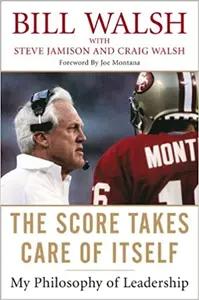Nietzsche: Beyond Good and Evil: Prelude to a Philosophy of the Future
By Friedrich Nietzsche
Category
PhilosophyRecommended by
"Nietzsche: Beyond Good and Evil" by Friedrich Nietzsche is a profound and thought-provoking exploration of contemporary moral perceptions and traditional philosophical values. Nietzsche challenges the prevailing notions of good and evil, asserting that they are subjective and malleable constructs created by society.
In this seminal work, Nietzsche critiques the belief in absolute truths, arguing for the necessity of questioning and reevaluating existing ideas. He suggests that morality should be individually determined and not imposed by external forces, advocating for the embrace of one's natural instincts and desires.
Nietzsche delves into the nature of power and the role it plays in human society. He contends that the prevailing moral framework is designed to suppress the powerful and elevate the weak, which leads to a stagnation of society. Instead, he promotes the idea of a "will to power," wherein individuals strive to dominate and assert themselves in order to reach their full potential.
The book examines a range of topics, including religion, human nature, culture, and the concept of free will. Nietzsche’s writing is characterized by its poetic style, aphorisms, and provocative insights, challenging readers to question their assumptions and embrace their own individuality.
"Nietzsche: Beyond Good and Evil" is a seminal work that continues to influence philosophical and moral discourse. It stands as a testament to Nietzsche's unique perspective and his ability to challenge conventional thinking, offering readers a new lens through which to view the complexities of the human condition.
In this seminal work, Nietzsche critiques the belief in absolute truths, arguing for the necessity of questioning and reevaluating existing ideas. He suggests that morality should be individually determined and not imposed by external forces, advocating for the embrace of one's natural instincts and desires.
Nietzsche delves into the nature of power and the role it plays in human society. He contends that the prevailing moral framework is designed to suppress the powerful and elevate the weak, which leads to a stagnation of society. Instead, he promotes the idea of a "will to power," wherein individuals strive to dominate and assert themselves in order to reach their full potential.
The book examines a range of topics, including religion, human nature, culture, and the concept of free will. Nietzsche’s writing is characterized by its poetic style, aphorisms, and provocative insights, challenging readers to question their assumptions and embrace their own individuality.
"Nietzsche: Beyond Good and Evil" is a seminal work that continues to influence philosophical and moral discourse. It stands as a testament to Nietzsche's unique perspective and his ability to challenge conventional thinking, offering readers a new lens through which to view the complexities of the human condition.
Share This Book 📚
More Books in Philosophy

Meditations
Marcus Aurelius

The Courage To Be Disliked
Ichiro Kishimi

A Guide To The Good Life
William B. Irvine

The Four Agreements
Don Miguel Ruiz

Zen and the Art of Motorcycle Maintenance
Robert M. Pirsig

Finite and Infinite Games
James Carse

Letters from a Stoic
Lucius Annaeus Seneca

René Girard's Mimetic Theory
Wolfgang Palaver

Seeking Wisdom
Peter Bevelin

Spiritual Enlightenment, the Damnedest Thing
Jed McKenna

Status Anxiety
Alain De Botton

The Prophet
Kahlil Gibran

The Republic
Plato

Zen Mind, Beginners Mind
Shunryu Suzuki

As One Is
Jiddu Krishnamurti

Autobiography of a Spiritually Incorrect Mystic
Osho

Being With Dying
Joan Halifax

Beyond Good and Evil
Friedrich Nietzsche

Confessions of a Philosopher
Bryan Magee

Consolations
David Whyte

Courage
Osho

Die With Zero
Bill Perkins

Dreamstate
Jed McKenna

Explaining Social Behavior
Jon Elster

Fallen Leaves
Will Durant

Falling into Grace
Adyashanti

How To Live
Sarah Bakewell

How Will You Measure Your Life?
Clayton Christensen

I Think, Therefore I Laugh
John Allen Paulos

Invariances
Robert Nozick
Popular Books Recommended by Great Minds 📚

Meditations
Marcus Aurelius

The Score Takes Care of Itself
Bill Walsh

Foundation
Isaac Asimov

Scale
Geoffrey West

Red Notice
Bill Browder

Skin In The Game
Nassim Taleb

The Autobiography of Benjamin Franklin
Benjamin Franklin

Snow Crash
Neal Stephenson

Originals
Adam Grant

American Kingpin
Nick Bilton

Titan
Ron Chernow

Security Analysis
Benjamin Graham

Only the Paranoid Survive
Andy Grove

Poor Charlie's Almanack
Charlie Munger

The Network State
Balaji Srinivasan

Creativity, Inc.
Ed Catmull

Sapiens
Yuval Noah Harari

Superforecasting
Philip Tetlock

The True Believer
Eric Hoffer

The Almanack of Naval Ravikant
Eric Jorgenson

Why We Sleep
Matthew Walker

Influence
Robert Cialdini

The Ride of a Lifetime
Bob Iger

Surely You're Joking Mr. Feynman
Richard Feynman

High Growth Handbook
Elad Gil

The Three Body Problem
Cixin Liu

Thinking, Fast and Slow
Daniel Kahneman

The Dao of Capital
Mark Spitznagel

Measure What Matters
John Doerr

The Sovereign Individual
James Dale Davidson & William Rees-Mogg
